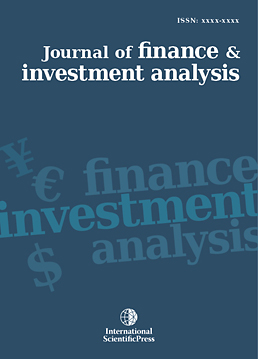Journal of Finance and Investment Analysis
Empirics of Demutualization of African Stock Exchanges: Lesson from Nigeria
-
 [ Download ]
[ Download ]
- Times downloaded: 11895
Abstract
Mutualisation means that the funding is strictly undertaken by members of a mutual company, whose membership is restricted by certain criteria and most non-profit oriented. To demutualize requires that the knots and bolts of mutualisation are loosened in such ways as to fit the needs of not only members but for public good. The inhibitive features differ across different Stock Exchanges globally, and hinges on corporate governance and regulatory quality with it. From 2004, the Nigerian capital market seems infested with lack of professionalization, broker- banker nexus and corruption which led to scams and erosion of confidence of investors from lack of trust. This might be catastrophic for a demutualized stock exchange. The study examines demutualization using linear probability techniques on how the adoption could drive Nigerian capital market indices in the face of questionable levels of regulatory and corporate governance. Regulatory functions that are for protecting public interest may not be effectively controlled by a demutualized stock exchange in African stock markets. It is suggested that the governance structure concerning membership proportion of stockbrokers of the Exchange is fundamental to privatization. The enabling laws protecting minority shareholders and corporate governance of listed companies should be addressed en-route to demutualization.
